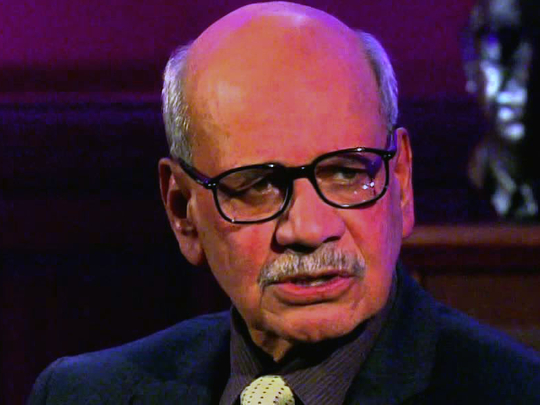
Islamabad: Pakistan’s former intelligence chief Asad Durrani has been summoned by the army to explain his position on the book that he co-authored with ex-Indian spy chief and an Indian journalist.
In a post on Twitter, the military’s media wing Inter-Services Public Relations (ISPR) said on Saturday that Durrani had been summoned to the General Headquarters (GHQ) on May 28 to “explain his position on views attributed to him in the book ‘Spy Chronicles’”. The tweet by ISPR DG Maj Gen Asif Ghafoor further said that the attribution was being taken as a “violation of the code of conduct applicable on all serving and retired military personnel.”
Former Inter-Services Intelligence (ISI) chief Lieutenant General (retd) Asad Durrani has co-authored ‘The Spy Chronicles: RAW, ISI and the Illusion of Peace’ with Research & Intelligence Wing (RAW) ex-boss Amarjit Singh Dulat and Indian journalist Aditya Sinha.
Pakistan military has reportedly expressed serious reservations over some of the comments in the book, terming them baseless and contrary to facts. It was because of these reasons that Durrani has been asked to clarify his position as the military code of conduct bars any serving or retired military official from making remarks that compromise the country’s national security.
Pakistan’s deposed premier Nawaz Sharif also called for a meeting of the National Security Committee (NSC) to discuss the book while former Senate chairman Raza Rabbani also questioned the collaboration.
Discussing the issue in the upper house of parliament, Rabbani was quoted by Pakistan’s English daily Express Tribune as saying: “Did Lt-Gen Durrani take permission from his institute before authoring such a book? This isn’t a trivial issue. Relations between the two countries are going through a rough patch.”
The first-ever book by two former chiefs of rival spy agencies has garnered much controversy for sensational security and military disclosures but it is also seen as an attempt to bring the two South-Asian neighbours together through dialogue. However, the launch of the book revealed the fractured political ties between the two countries as Asad Durrani was denied visa by Indian government to attend the launch ceremony held on May 23 in New Delhi.
Why the controversy?
Pakistan and India are long-time adversaries since the partition in 1947. There have been few flickers of friendship in the long relationship defined by conflicts and tension. The two countries have officially gone to war four times in seven decades of hostility. This is why the book by the former spy chiefs of Pakistan and India, detailing accounts and perspectives of military officials, has garnered enormous controversy on both sides of the border.
The Durrani and Dulat book covers critical issues including the Kargil operation, the Abbottabad operation against Osama Bin Laden, the arrest of Indian spy Kulbhushan Jadhav in Pakistan, Hafiz Saeed, the Kashmir conflict and Burhan Wani, the Mumbai attacks, trade wars, and overall terrorism situation.
Both authors suggest that old political formulas have failed and it is time to allow an institutional line of dialogue between spies on both sides. The book also describes people-to-people contact between both countries as a “low hanging fruit” that could be used to resume sports ties as well.
Profile of Asad Durrani
Lt Gen (retd) Asad Durrani is a former head of the Pakistani intelligence agency ISI. He joined the Pakistan Military Academy in 1960. During his 30 years with the Army, he served in a number of command, staff and instructional appointments. He also took part in the wars of 1965 and 1971.
Durrani’s key appointments include an instructorship at the Command and Staff College Quetta; Director General, Military Intelligence; Director General, Inter-Services Intelligence; Inspector General, Training and Evaluation at GHQ; and Commandant, National Defense College. He also had a brief stint as Pakistan’s defence attaché in Germany from 1980 to 1984. After retiring from Army in May 1993, he was appointed as Ambassador to Germany from 1994—1997, and Ambassador to Saudi Arabia from 2000—2002.












